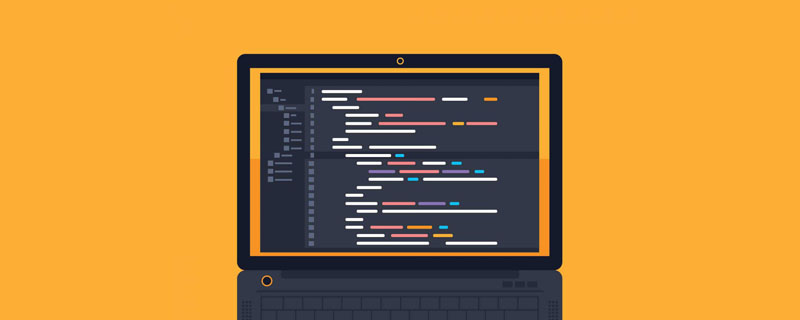 Web Front-end
Web Front-end H5 Tutorial
H5 Tutorial In-depth analysis of the use of Blob objects in HTML5_html5 tutorial skills
In-depth analysis of the use of Blob objects in HTML5_html5 tutorial skillsThe Blob object in HTML5 and the BLOB type in MYSQL are conceptually different. The BLOB type in MYSQL is just a binary data container. In addition to storing binary data, the Blob object in HTML5 can also set the MINE type of this data, which is equivalent to storing files. Many other binary objects also inherit from this object.
In slightly earlier versions of modern browsers, this Blob object has not been standardized, so it needs to be created using BlobBuilder or the like. But now that Blob has been standardized to the point that it can be created directly by new its constructor Blob, and almost all browsers already support this method, so there is no need to worry about the old standard.
- var data='Cobalt hypocarbonate' ;
- var blob=new Blob([data],{"type":"text/html" });
- console.log(blob);

In this way, we create a Blob object. Note that the parameters of the Blob constructor are rather strange. The first parameter is a set of data, so it must be an array. Even if there is only one string like the example above, a number must be used. Assemble it. The second parameter is the configuration attribute of this Blob object. Currently, there is only one type, which is the related MIME, that needs to be set. The key-value method may be for future expansion.
So, what is the use of making data into Blob? For Blob objects, we can create a URL to access it. Use the createObjectURL method of the URL object.
- var data='Cobalt hypocarbonate' ;
- var blob=new Blob([data],{"type":"text/html" });
- onload=function(){
- var iframe=document.createElement("iframe");
- iframe.src=URL.createObjectURL(blob);
- document.body.appendChild(iframe);
- };

Not only text/html in the above example, but any type supported by the browser can be used in this way. Moreover, the life cycle of this Blob-URL is from creation to document release, which will not cause a waste of resources.
Blob is a very basic binary data object in HTML5. The operation parameters of many methods support the use of Blob. I can’t list them all. In short, almost all methods whose parameter type is binary data support using Blob as a parameter. Therefore, turning the data into Blob can make subsequent operations more convenient.
Method
slice()
Returns a new Blob object, containing the data within the specified range in the source Blob object.
- Blob slice(
- optional long long start,
- optional long long end,
- optional DOMString contentType
- };
Parameters
start optional
start index, can be a negative number, the syntax is similar to the slice method of array. The default value is 0.
end optional
end index , can be a negative number, the syntax is similar to the slice method of the array. The default value is the last index.
contentType optional
MIME type of the new Blob object, this value will become the type attribute of the new Blob object Value, defaults to an empty string.
Return value
A new Blob object containing the data within the specified range in the source Blob object.
Note
If the value of the start parameter is greater than the source Blob If the value of the size attribute of the object is still large, the size value of the returned Blob object is 0, which means it does not contain any data.
BlobPropertyBag
An object containing two attributes type and endings.
type
sets the type attribute of the Blob object.
endings (deprecated)
corresponds to the BlobBuilder.append() method endings parameter. The value of this parameter can be "transparent" or "native".
Blob constructor usage example
The following code:
- var aFileParts = ["hey! a>"];
- var oMyBlob = new Blob(aFileParts, { "type" : "text/xml" }) ; // the blob
is equivalent to:
- var oBuilder = new BlobBuilder();
- var aFileParts = ["hey!" ];
- oBuilder.append(aFileParts[0]);
- var oMyBlob = oBuilder.getBlob("text/xml"); // the blob
The BlobBuilder interface provides another way to create Blob objects, but this method is now obsolete, so it should no longer be used.
Example: Create an object URL using type array and Blob object
- var typedArray = GetTheTypedArraySomehow();
- var blob = new Blob([typedArray], {type: "application/octet-binary"}); // Pass in a suitable MIME type
- var url = URL.createObjectURL(blob);
- // Will generate a URL string similar to blob:d3958f5c-0777-0845-9dcf-2cb28783acaf
- // You can use it like a normal URL, for example on img.src.
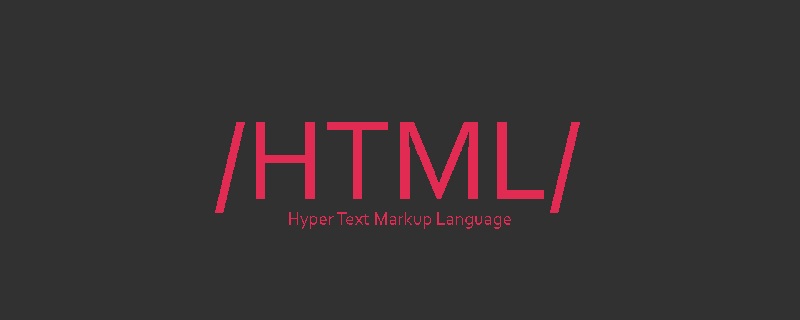 HTML超文本标记语言--超在那里?(文档分析)Aug 02, 2022 pm 06:04 PM
HTML超文本标记语言--超在那里?(文档分析)Aug 02, 2022 pm 06:04 PM本篇文章带大家了解一下HTML(超文本标记语言),介绍一下HTML的本质,HTML文档的结构、HTML文档的基本标签和图像标签、列表、表格标签、媒体元素、表单,希望对大家有所帮助!
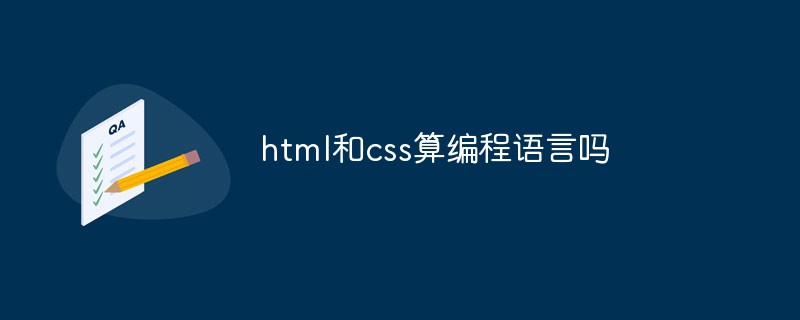 html和css算编程语言吗Sep 21, 2022 pm 04:09 PM
html和css算编程语言吗Sep 21, 2022 pm 04:09 PM不算。html是一种用来告知浏览器如何组织页面的标记语言,而CSS是一种用来表现HTML或XML等文件样式的样式设计语言;html和css不具备很强的逻辑性和流程控制功能,缺乏灵活性,且html和css不能按照人类的设计对一件工作进行重复的循环,直至得到让人类满意的答案。
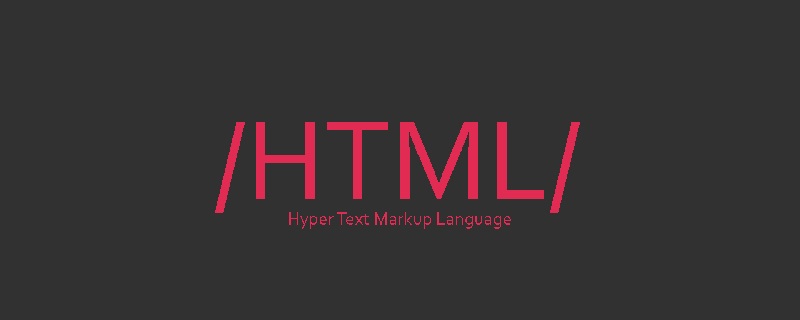 web前端笔试题库之HTML篇Apr 21, 2022 am 11:56 AM
web前端笔试题库之HTML篇Apr 21, 2022 am 11:56 AM总结了一些web前端面试(笔试)题分享给大家,本篇文章就先给大家分享HTML部分的笔试题(附答案),大家可以自己做做,看看能答对几个!
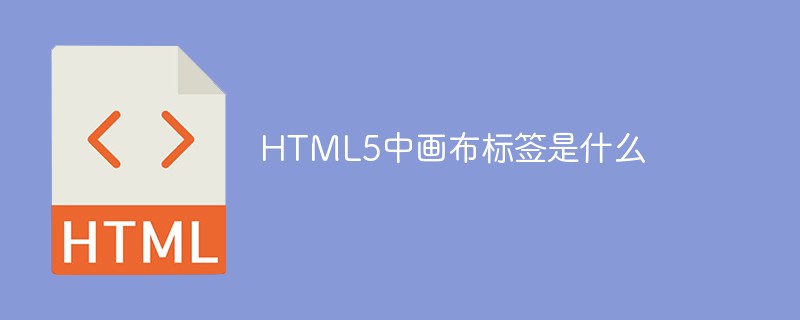 HTML5中画布标签是什么May 18, 2022 pm 04:55 PM
HTML5中画布标签是什么May 18, 2022 pm 04:55 PMHTML5中画布标签是“<canvas>”。canvas标签用于图形的绘制,它只是一个矩形的图形容器,绘制图形必须通过脚本(通常是JavaScript)来完成;开发者可利用多种js方法来在canvas中绘制路径、盒、圆、字符以及添加图像等。
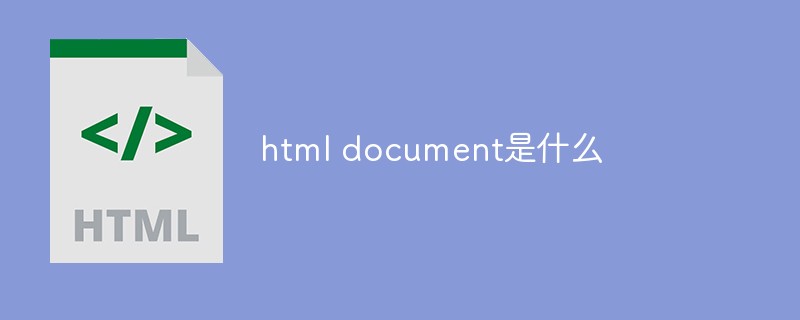 html中document是什么Jun 17, 2022 pm 04:18 PM
html中document是什么Jun 17, 2022 pm 04:18 PM在html中,document是文档对象的意思,代表浏览器窗口的文档;document对象是window对象的子对象,所以可通过“window.document”属性对其进行访问,每个载入浏览器的HTML文档都会成为Document对象。
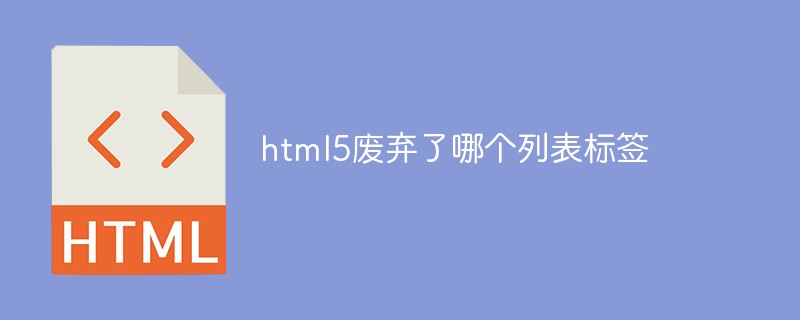 html5废弃了哪个列表标签Jun 01, 2022 pm 06:32 PM
html5废弃了哪个列表标签Jun 01, 2022 pm 06:32 PMhtml5废弃了dir列表标签。dir标签被用来定义目录列表,一般和li标签配合使用,在dir标签对中通过li标签来设置列表项,语法“<dir><li>列表项值</li>...</dir>”。HTML5已经不支持dir,可使用ul标签取代。
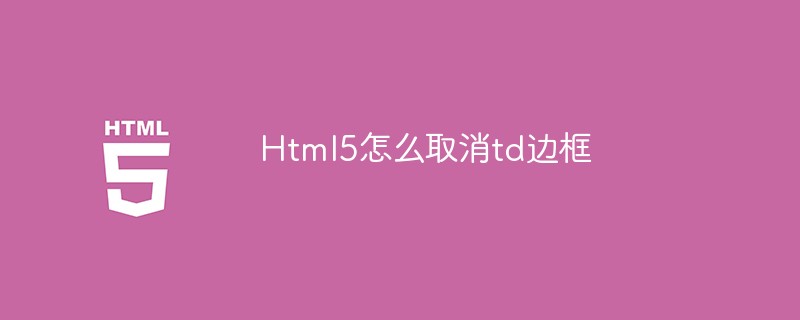 Html5怎么取消td边框May 18, 2022 pm 06:57 PM
Html5怎么取消td边框May 18, 2022 pm 06:57 PM3种取消方法:1、给td元素添加“border:none”无边框样式即可,语法“td{border:none}”。2、给td元素添加“border:0”样式,语法“td{border:0;}”,将td边框的宽度设置为0即可。3、给td元素添加“border:transparent”样式,语法“td{border:transparent;}”,将td边框的颜色设置为透明即可。


Hot AI Tools

Undresser.AI Undress
AI-powered app for creating realistic nude photos

AI Clothes Remover
Online AI tool for removing clothes from photos.

Undress AI Tool
Undress images for free

Clothoff.io
AI clothes remover

AI Hentai Generator
Generate AI Hentai for free.

Hot Article

Hot Tools

SAP NetWeaver Server Adapter for Eclipse
Integrate Eclipse with SAP NetWeaver application server.

SublimeText3 Linux new version
SublimeText3 Linux latest version

SublimeText3 Mac version
God-level code editing software (SublimeText3)

Zend Studio 13.0.1
Powerful PHP integrated development environment

SublimeText3 Chinese version
Chinese version, very easy to use




